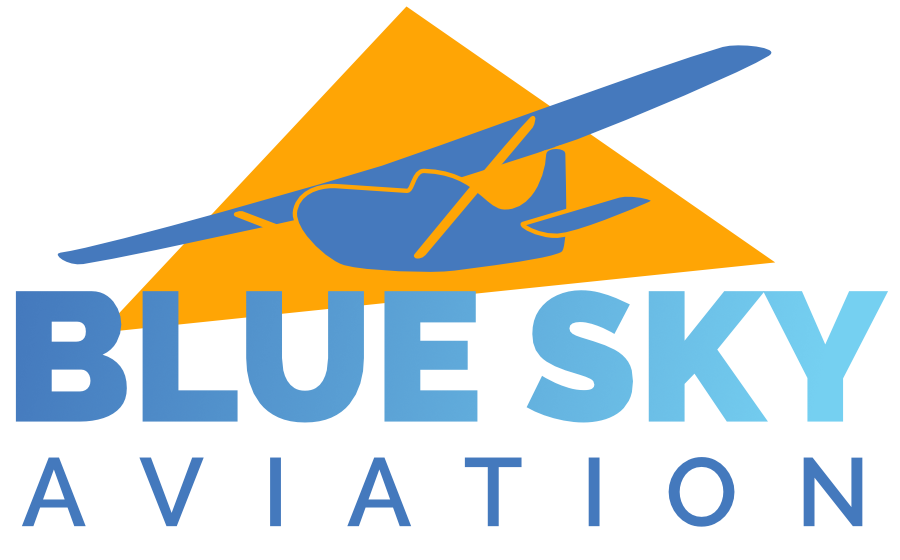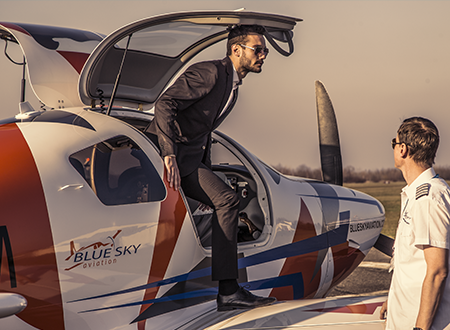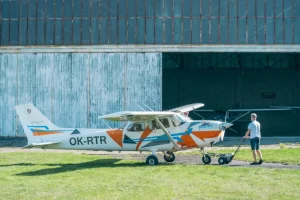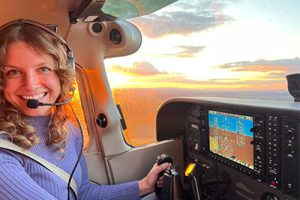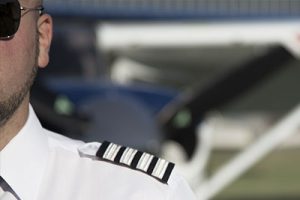How to Obtain a Pilot’s License: Practical Advice for Aspiring Pilots
Have you decided to learn how to fly an airplane?
The first question that must be asked is: Why do you want to fly?
Let’s be straightforward – learning to fly is not inexpensive! Therefore, it’s crucial to ensure that you get the most value and highest quality for your money. Speaking of finances, one thing should be clear from the start. There are a few things in life where you shouldn’t look for the cheapest option. This is especially true when choosing the right flight school and instructor! After all, flying can become risky if you are not adequately trained or if you fly with poorly maintained aircraft or an inexperienced instructor.

Hence, when deciding on the best flight school, it’s crucial to clarify the motivation behind your goal of learning to fly. Consider the example of a young individual aspiring to pilot a commercial aircraft, in contrast to someone seeking recreational flying or an entrepreneur who manages branches across Europe and makes business trips on a personal airplane.
For an entrepreneur, the necessity lies in flying long distances with larger, more powerful aircraft, often in challenging weather conditions. This requires knowledge of advanced avionics and instrument qualifications, involving more flights with a qualified instructor on high-performance aircraft.
Conversely, someone content with flying “around the airport” on weekends requires a sports or recreational pilot license for ultralight aircraft (ULL) or a private pilot license (PPL) without additional extensions.
And what about a student aspiring to become an airline pilot? Their journey is the longest with the highest demands on pilot qualifications. For them, we have prepared a separate article: How to Become an Airline Pilot.
Where to Start?
Once you have defined your goals for flying, the next step in the process is to decide when and where to start training.
Our flight school is built on an individual approach to our students. We fully adapt to their schedules and other specific requirements, such as the training location. We provide our students with the necessary educational materials for free, so they don’t have to spend time acquiring them. We handle administrative tasks with their consent and provide access to a flight simulator. The main goal of our flight school is to train safe and responsible pilots. The individual approach allows us to fully dedicate ourselves to the student while accommodating their individual possibilities and needs.
Before deciding on which flight school to choose for your pilot training, we recommend researching and exploring the available options. While you are currently on the BLUE SKY AVIATION website, we encourage you to look around, call, or reach out elsewhere. Gather as much information as possible to make an informed decision. To be completely honest, we may not be the flight school that best suits your preferences, but the only way to find out is to do your “homework”!
Here are a few things to focus on when looking for where to obtain your pilot’s license:
Type of Aircraft and Maintenance:
- Consider the types of aircraft used in training and their maintenance standards.
Structured Training Curriculum:
- Ensure the presence of a well-organized training curriculum, both on the ground and in flight, approved by the Civil Aviation Authority.
Experienced and Certified Instructors:
- Ensure the presence of experienced and certified flight instructors, overseen by an experienced chief flight instructor.
Cost Estimates:
- Get detailed cost estimates for all aspects directly related to pilot training, considering your specific goals.
Flight Simulator Availability:
- Inquire if the flight school provides access to a flight simulator for enhanced training.
Communication and Responsiveness:
- Assess the responsiveness of the flight school to your calls and emails. Evaluate the courtesy and helpfulness of the staff.
Testing Locations:
- Find out where the final written and practical tests will be conducted.
Flexibility with Your Schedule:
- Evaluate if the school can accommodate your time constraints and work commitments.
By considering these factors, you’ll be better equipped to make an informed decision about the flight school that aligns with your unique needs and goals.
How can I prepare for aviation training?
Now that you have chosen a flight school, it is necessary to fulfil several requirements, primarily focused on the safety of flying.
All citizens of the Czech Republic, as well as foreigners aspiring to become airplane pilots, must provide:
- Identification document
- Undergo a medical examination
A medical examination is particularly important. To become a pilot, you must obtain at least Class 2 Medical Certificate . For obtaining a private pilot license, common health limitations such as common visual impairments like astigmatism usually do not pose an obstacle. You can undergo a medical examination only with authorized doctors or authorized medical facilities. More information is available here.
After that, you can start your pilot training; no further preparation is necessary.
Can anyone fly?
Flight training is an experience that can be enjoyed by a wide range of people. In fact, there is only one limitation for starting flight training, and that is passing a basic medical examination. Even children can undergo flight training, provided they can reach all the controls of the aircraft. Of course, there are some minimum age limits for obtaining a pilot’s license.
For example: the minimum age for obtaining a pilot’s license for ultralight pilots (ULL) is 15 years, and the minimum age for a private pilot license (PPL) qualification is 17 years. You can become a commercial pilot with a CPL license at the age of 18. And a pilot of transport aircraft with an ATPL license at the age of 21.
How much will it cost me?
The cost you will have to pay to learn to fly and obtain a pilot’s license varies from person to person and depends on many factors. Here, we would like to emphasize again that when deciding to learn to fly, the price should not be the main factor in choosing where to obtain your pilot’s license. You should always seek the maximum volume and quality of training you can get. When it comes to flight training, cheap is rarely a good thing.
Three factors to consider when budgeting for your flying lessons are as follows:
- What are your main goals? Considering your goals; what type of aircraft, flight simulator, etc., will best help you achieve these goals?
- Will you have time to complete lessons so that you can manage each phase of training within an optimal time frame, which is approximately 4-8 months, and not have significant gaps between individual lessons? Time delays in training only contribute to the need for more repetition, purchasing additional hours for pilot skill training, and thus potentially making your pilot training more expensive.
- As mentioned above, your flying goals will have a significant impact on how your overall flight training is conducted. If you are interested in learning to fly for recreational purposes, then training for a sport pilot license in light sport aircraft may be significantly cheaper compared to someone aiming to fly commercially in high-performance aircraft following instrument flight experience. Your flight school representative should be able to help you come up with a budget tailored to your goal and adapted to your individual needs.
I have learned to fly an airplane, what’s next?
After completing your “learn to fly” adventure and obtaining your pilot’s license, you will be granted a privilege that is now held by less than 2% of the population. The feeling of freedom and adventure you experience during your first takeoff as a certified pilot is something that must be experienced firsthand to be fully appreciated. And the true adventure is just beginning!
Mastering the practical exam successfully opens the door to exciting opportunities and adventures. One such option is enhancing your license with an instrument qualification. This qualification equips you with the necessary skills to navigate an aircraft safely in challenging weather conditions and reduced visibility, significantly expanding the utility of your license, particularly if you intend to undertake longer flights. Additionally, you have the option to undergo training for multi-engine aircraft, or high-performance aircraft, further broadening your aviation capabilities.
